Lung cancer is a tabooed topic.
Are smokers the only lung cancer patients? What about second hand smoke, e-cigarettes, air pollution? What are the risks and to what extent do they exist? Why quit smoking if you are already diagnosed?
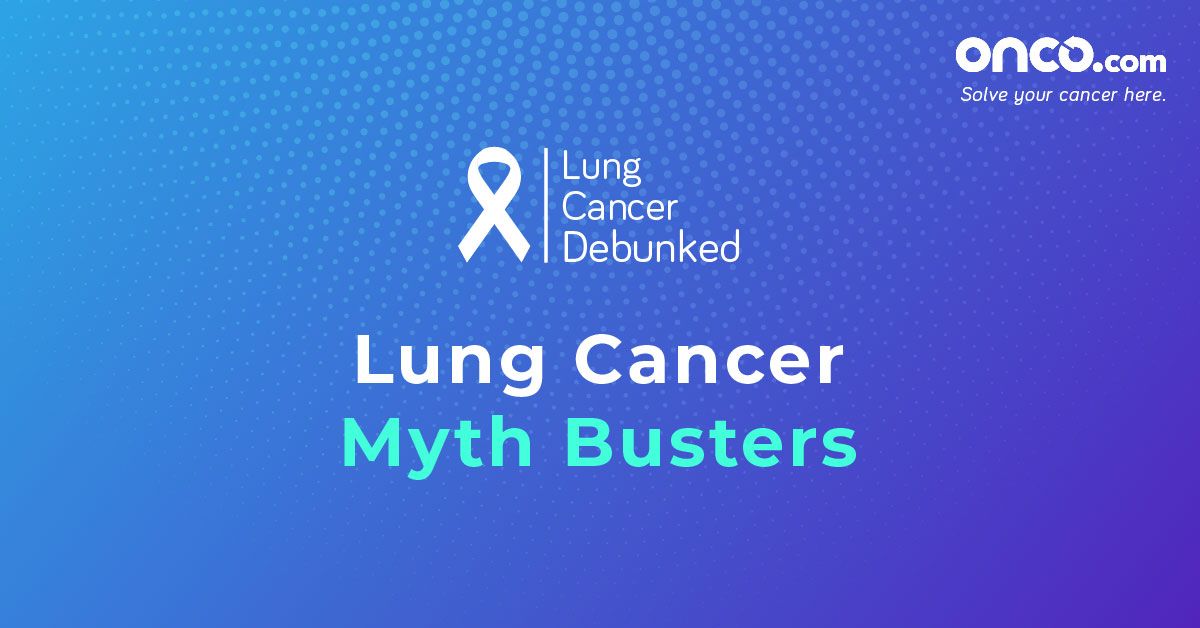 Find out what is fact and what is fiction.
Find out what is fact and what is fiction.
This lung cancer myth buster series debunks superstition, misconceptions and unproven claims. Prepare to kick-out a number of lies that cloud the truth about one of the deadliest of cancers. Because myths add to the stigma attached to the disease and must be killed in a hurry!
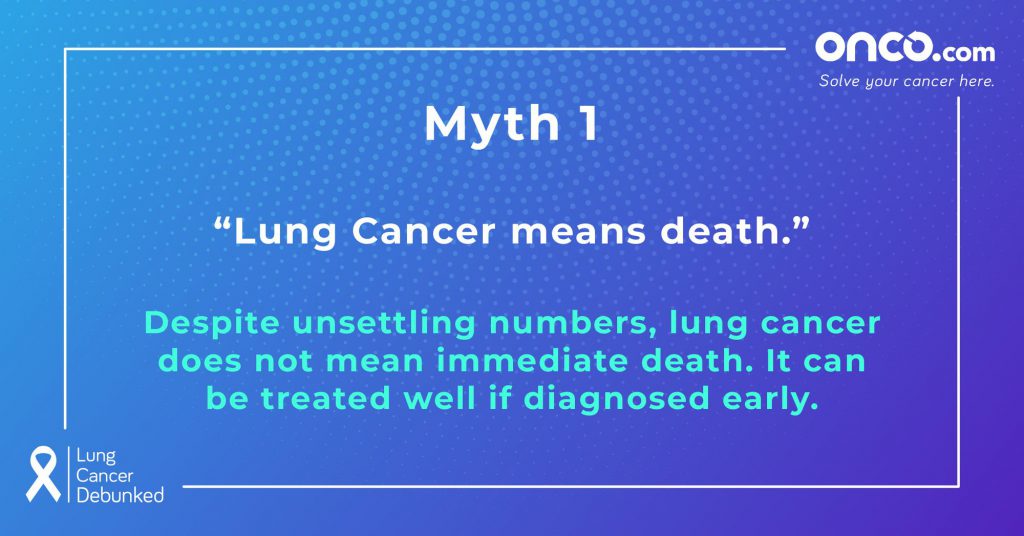
That’s correct. Early diagnosis and timely treatment of lung cancer is very important to make sure you do not have to pay the ultimate price. Read more about Lung Cancer Signs and Symptoms.
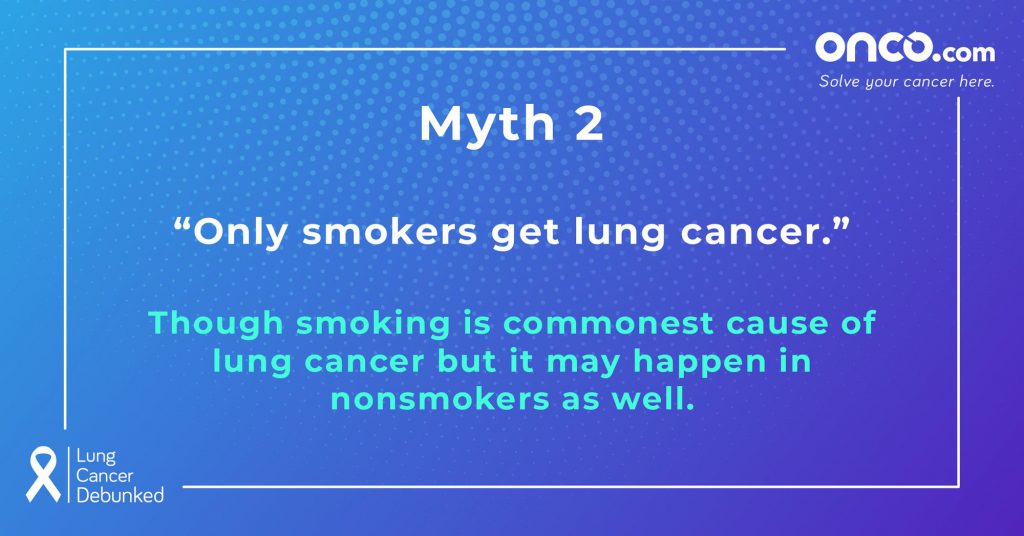
There are other causes to lung cancer like secondhand smoke, radon exposure, radiation to the chest, diets, menthol, pollution or just plain genetic history. Read more on Risk Factors of Lung Cancer.
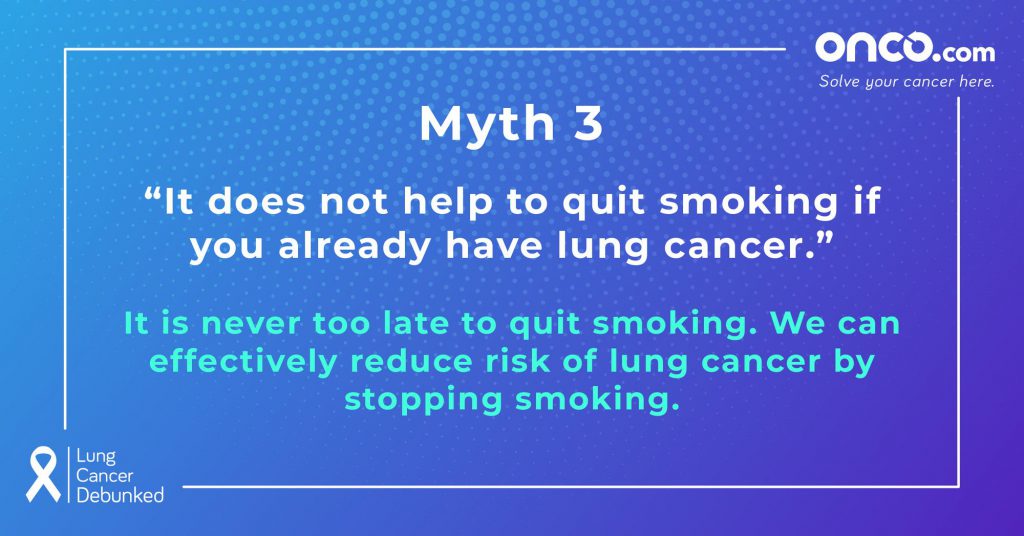
Smoking, however, is the leading cause of lung cancer. About 80%- 90% of deaths are attributed to cigarette smoking. Read more on the Prevention of Lung Cancer here.
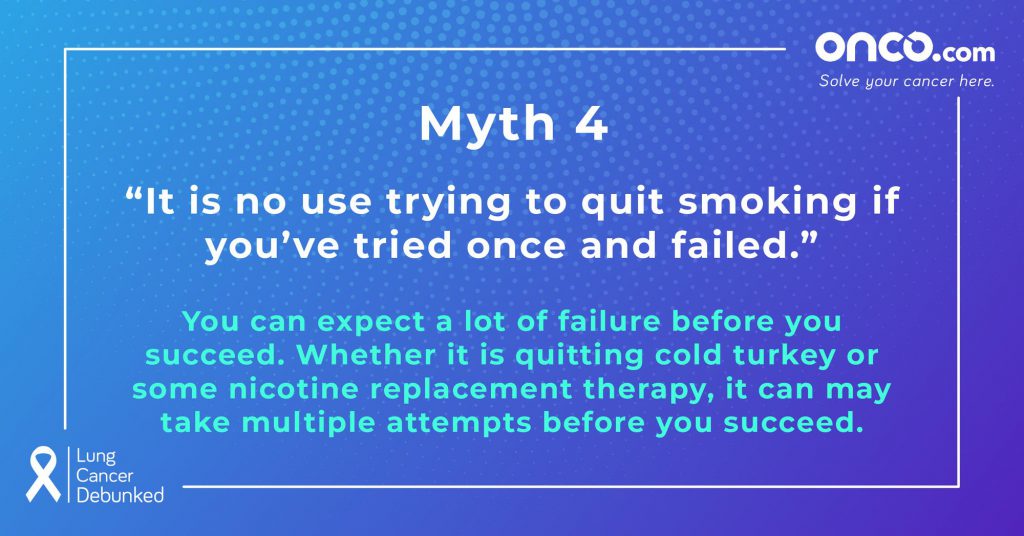
Treatment options like chemotherapy for lung cancer may be hindered if the patient does not take care to quit tobacco smoking. It is counter productive to any progress in health.
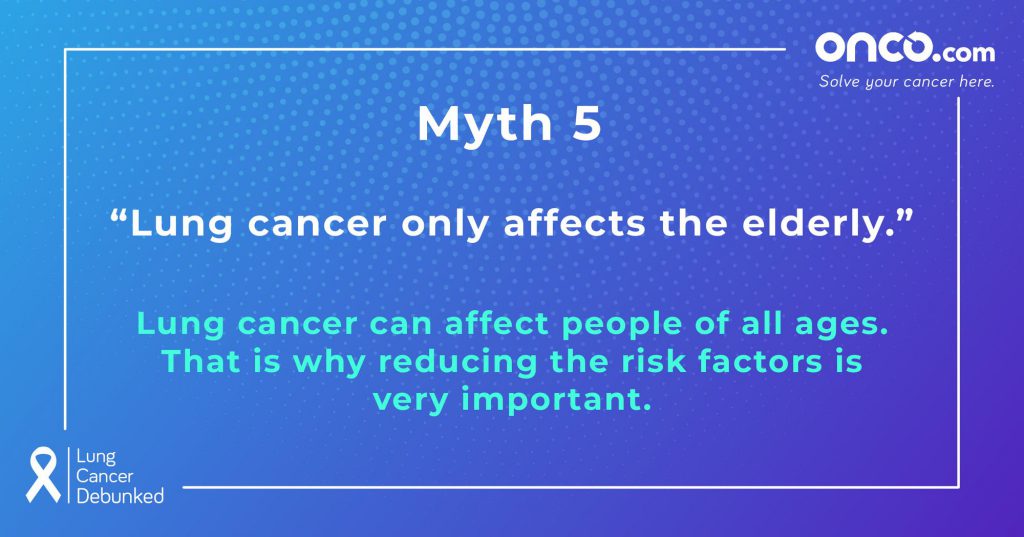
While averages lay between ages 54 to 64, the risk of developing the disease pervades all age groups.
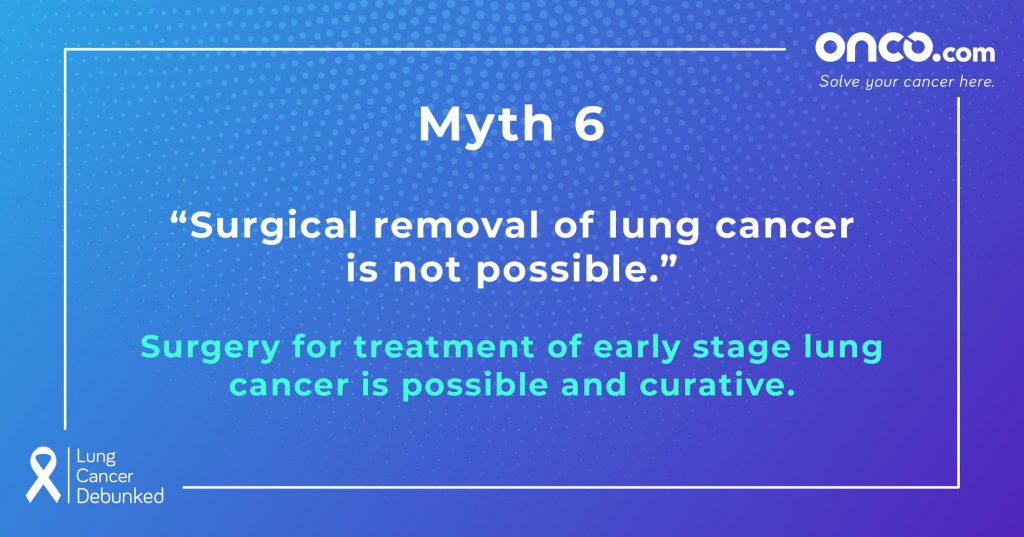
Even at later stages, a lobectomy (removal of major portions of the lung is conducted) but the chances of relapse still exist. Read more on Treatment for Lung Cancer here.
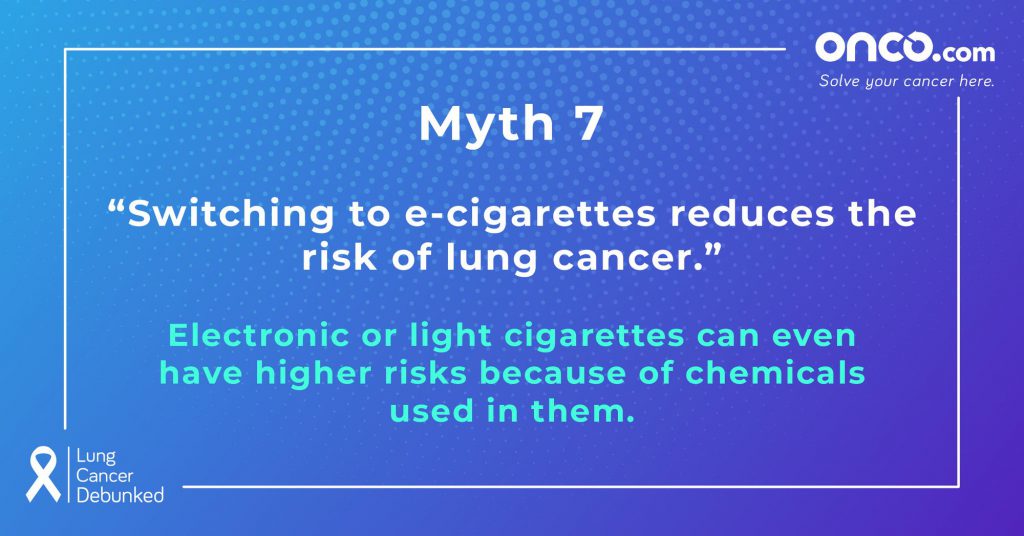
E-cigarette emissions have not been evaluated for inhalation toxicities. The inhalation of flavoring agents, which are more often than not aldehydes, are risky to the respiratory system and the body. Flavoring agents in exceedingly high concentrations may lead to high exposure doses.
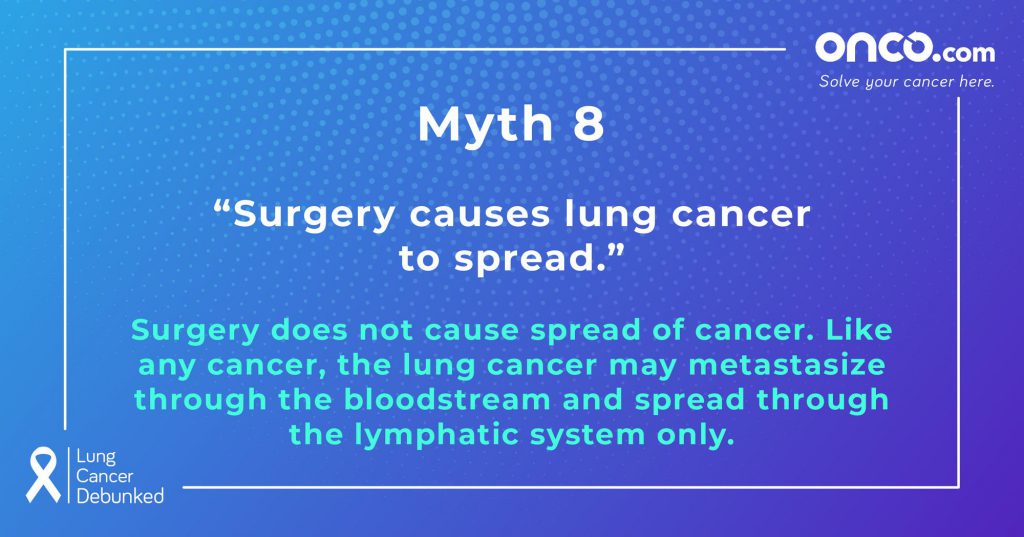
Surgery is a treatment modality that can remove up to 99% of cancer cells. The few that remain may tend to reappear and cause relapse. Surgery itself is not a risk factor to any form of cancer.
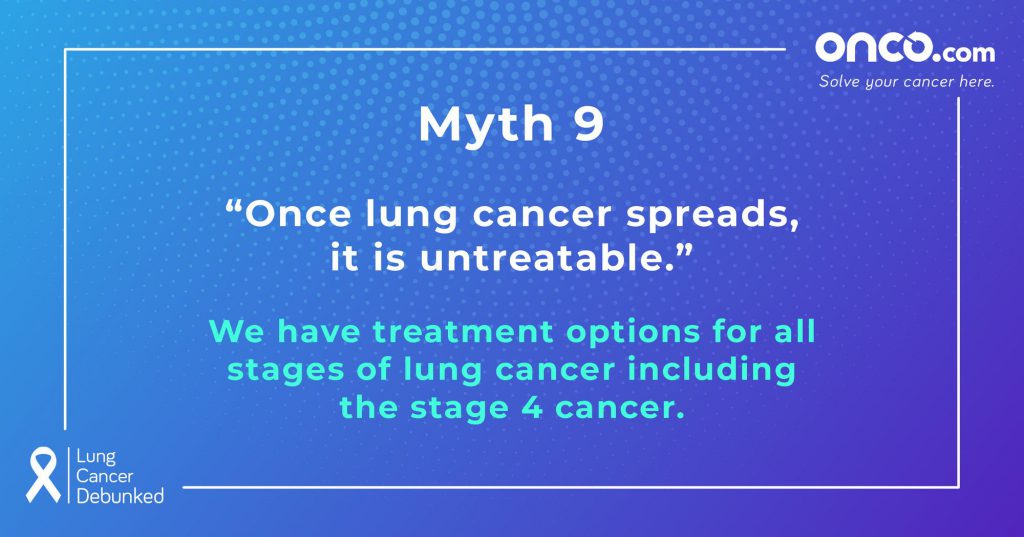
This is not true. We have both curative and palliative treatment types for lung cancer depending on the stage.
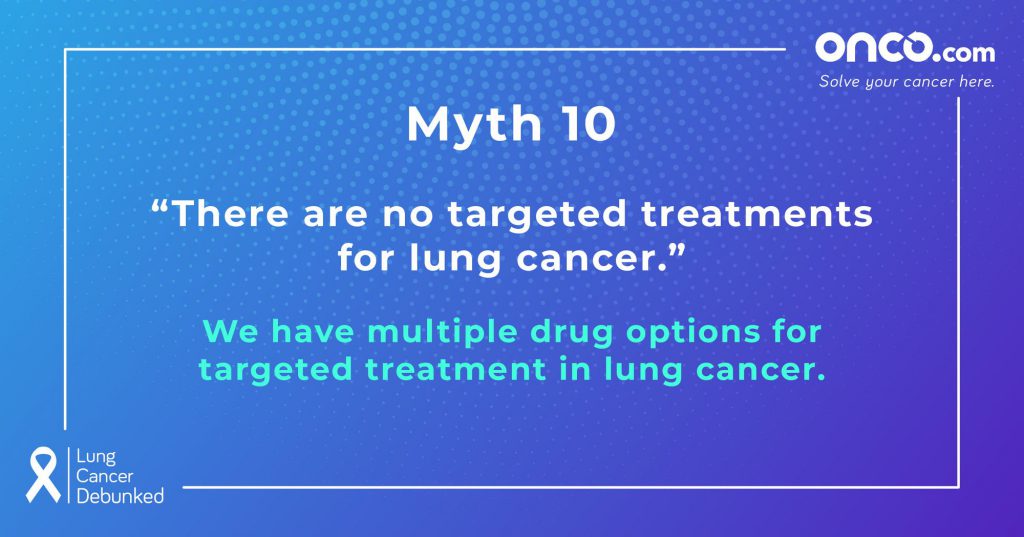
While trials are conducted and newer drugs are being researched, targeted therapies which work favorably on one patient may not show results on another patient. Surgery, chemotherapy, and radiation therapy are established traditional treatment options, and targeted therapy still has immense scope for future oncological developments. Read more on What is Lung Cancer here.
Thanks for reading and we hope this helped debunk myths around lung cancer. If you’d like to connect with Onco.com, call us or write to us! We’re happy to help. Start your case now.


